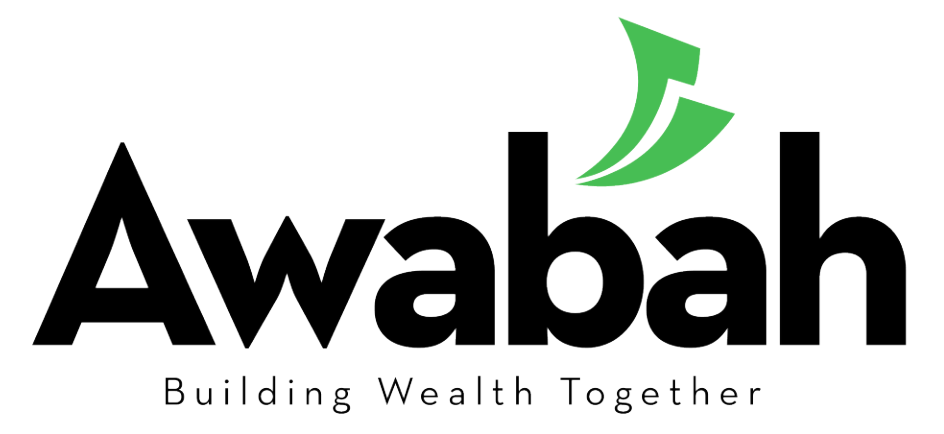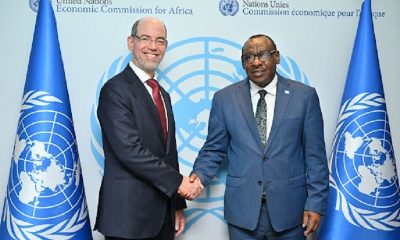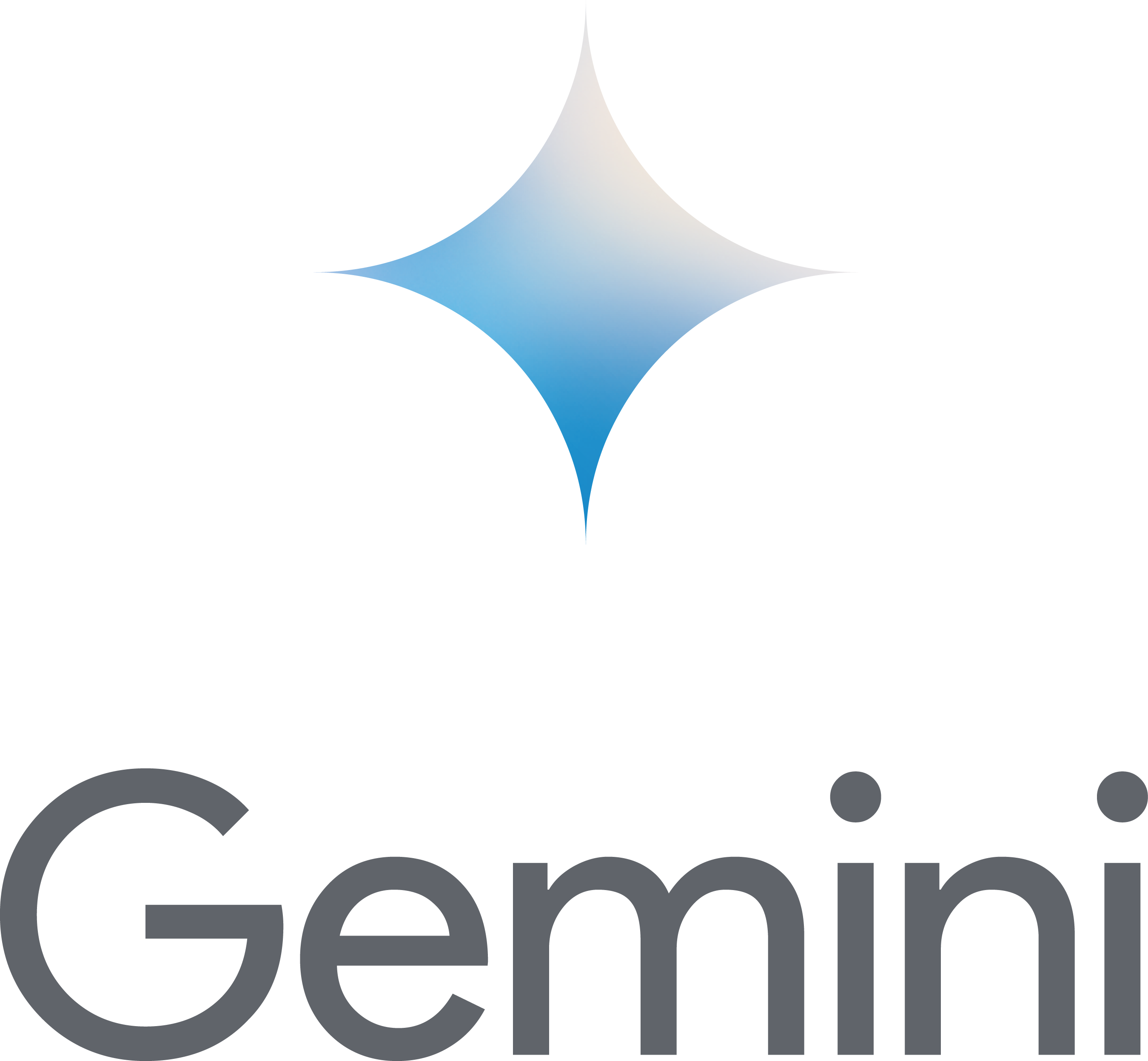Economy
Google Picks Awabah, LifeBank, Flex Finance, Others for $4m Funding Support

By Aduragbemi Omiyale
A total of 60 startups established by entrepreneurs of African origin have been selected by a tech giant, Google, for the second cohort of Google for Startups Black Founders Fund (BFF) for Africa.
The beneficiaries will have the opportunity to have a share of the $4 million in funding support to assist their companies to expand their operations to other regions.
A digital pensions platform from Nigeria, Awabah, is among the startups chosen by Google for the programme and will join others to undergo a 6-month training programme that includes access to a network of mentors to assist in tackling challenges that are unique to them.
The 60 startups from Botswana, Cameroon, Ethiopia, Ghana, Kenya, Nigeria, Rwanda, Senegal, South Africa and Uganda will also be part of tailored workshops, support networks and community-building sessions.
According to Google, the 60 grantees, made up of 50 per cent women-led businesses, will also receive non-dilutive awards of between $50,000 and $100,000 and up to $200,000 in Google Cloud credit.
The beneficiaries were taken from various sectors such as fintech, healthcare, e-commerce, logistics, agtech, education, hospitality and smart cities.
Business Post gathered 23 startups were picked from Nigeria, 12 from Kenya, six from Rwanda, five from South Africa, four from Uganda, three each from Cameroon and Ghana, two from Ethiopia and one each from Botswana and Senegal.
The Google for Startups scheme was launched in April 2012 and has created over 4,600 jobs and raised more than $290 million in funding.
The Google for Startups Black Founders Fund programme will introduce the grantees in Africa to Google’s products, connections, and best practices which will help the founders to level the playing field as they build better products and services that add value to the African economy.
The Head of Startup Ecosystem, SSA for Google, Folarin Aiyegbusi, while commenting on the initiative, stated that, “Africa is a diverse continent with massive opportunity but the continent is faced with the challenge of limited diversity in venture capital funding flow.
“We hope that the Black Founders Fund program will be able to bridge the gap of disproportionate funding between ex-pat startups over local and black-led companies.”
Funding for the Google for Startup Black Founders Fund will be distributed through Google’s implementation partner, CcHUB.
“The equity-free cash assistance to startups will enable them to take care of immediate needs such as paying staff, funding inventory, and maintaining software licences. This is to help the grantees buffer the cost of taking on debt in the early stages of their business as many of them do not have steady revenue streams yet,” Aiyegbusi disclosed.
“Programs like the Black Founders Fund enhance the African ecosystem – where we currently have gaps in funding and infrastructure. Google getting involved and throwing its might behind thriving entrepreneurs in Africa is a beautiful thing, and I am very happy that Google has continued the Black Founders Fund in Africa initiative in 2022,” the CEO of MyMedicines and alumni of the 2021 BFF program, Abimbola Adebakin said.
Below is the list of the 60 startups selected for the programme:
|
S/N |
Name |
Country |
About |
|
1. |
South Africa |
Agrikool is an agritech platform that connects farming producers and buyers to a fair and reliable market. |
|
|
2. |
Kenya |
Ajua is an end-to-end operating system for SMEs to build a credible online presence, get feedback on their businesses and manage the relationship with their customers |
|
|
3. |
Nigeria |
Awabah is a digital pensions platform for Africa’s workforce |
|
|
4. |
Rwanda |
BAG Innovation is a virtual and gamified platform that offers real-time access to experiential learning for university students and recent graduates |
|
|
5. |
Rwanda |
Baliport is a cross-border, multi-currency payment platform focused on enabling intra-Africa & Africa outbound money transfers through blockchain. |
|
|
6. |
Cameroon |
Bee finances motorcycles to drivers while also providing training and access to jobs. |
|
|
7. |
Nigeria |
Bookings Africa enables Africa’s gig workforce to digitise and monetize their skills by connecting clients efficiently and transparently to skilled talent across Africa. |
|
|
8. |
Botswana |
Brastorne connects the unconnected in Africa, enabling rural villages to have access to the digital world without smartphones or data. |
|
|
9. |
Ghana |
Built enables access to business and financial tools for Sub-Saharan African small and medium-sized businesses (SMBs). |
|
|
10. |
Kenya |
BuuPass is a travel startup – building digital rails for Africa’s intercity transport industry and supporting bus, train & flight transportation |
|
|
11. |
Senegal |
Cauri Money is a cashless remittance platform helping African migrants move money from around the world into mobile wallets in Africa. |
|
|
12. |
Nigeria |
Clafiya connects individuals, families, and businesses to health practitioners – enabling access to convenient, quality, and affordable, on-demand primary care from their mobile phones |
|
|
13. |
Uganda |
ClinicPesa provides an easy-to-use platform where low-income users can set aside funds as low as $0.30 daily dedicated towards healthcare and get access to healthcare loans |
|
|
14. |
Cameroon |
COVA is a digital insurance platform that enables partner businesses to easily and seamlessly deliver insurance products to their users |
|
|
15. |
South Africa |
CreditAIs provides credit scoring tools for micro-businesses and individuals that do not fit the existing traditional credit scoring models |
|
|
16. |
Kenya |
DohYangu enables end consumers in Africa to shop FMCG products & get cashback rewards at various retail stores, saving up to 25% |
|
|
17. |
Uganda |
Easy Matatu provides a mobile platform that allows commuters to book and pay for scheduled rides on vetted and inspected minibuses |
|
|
18. |
Nigeria |
Eden Life provides an operating system for receiving and rendering essential services in Africa – focused on offering food, cleaning, laundry, and beauty services to their customers. |
|
|
19. |
Nigeria |
Estate Intel provides reliable data to businesses that are investing or operating in the African real estate space. |
|
|
20. |
Uganda |
Eversend is a neobank, providing critical financial products in Sub-Saharan Africa – including cross-border financial services. |
|
|
21. |
Rwanda |
Exuus empowers informal saving groups with a digital ledger, digital wallet, decentralised social credit score, and instant micro-loans to both groups and individuals. |
|
|
22. |
Nigeria |
Flex Finance helps businesses in Africa to manage approval workflow, access credit, issue corporate cards to employees and make disbursements all from one platform. |
|
|
23. |
Kenya |
FlexPay is a merchant-embedded digital savings platform that rewards customers for saving up for purchases – a save now buy later (SNBL) solution at checkout. |
|
|
24. |
Nigeria |
Gamr is an eSports tournament aggregation platform, helping African gamers discover tournaments they can play in and get rewarded for. |
|
|
25. |
Ethiopia |
Garri Logistics matches shippers looking to move cargo with vehicle owners and drivers, while finding optimal route pairings to reduce empty miles. |
|
|
26. |
Nigeria |
Haul247 is a logistics platform that connects manufacturing companies and farmers with trucks and warehouses. |
|
|
27. |
Cameroon |
Healthlane provides advanced comprehensive health screening and personalised plans, biometric monitoring, genetic analysis as well as in-person and virtual visits with top-rated doctors . |
|
|
28. |
Nigeria |
Healthtracka is a platform that allows users access on-demand healthcare services in the comfort of their homes. |
|
|
29.. |
Nigeria |
HerVest offers a highly secured, women-focused financial platform that enables women to participate in key financial services, with a focus on female farmers. |
|
|
30. |
Rwanda |
Kapsule is a data as a service company that helps healthcare providers, insurers, and pharmaceutical companies to make better decisions |
|
|
31. |
Kenya |
Keep IT Cool is an early-stage, fast-growing social enterprise that leverages technology to strengthen the African aquaculture and poultry value chain through cold chain and storage |
|
|
32. |
Ghana |
KUDIGO offers an omni-channel digital commerce platform to empower micro and small businesses in Africa |
|
|
33. |
Nigeria |
Kyshi provides multi-currency accounts and remittance services to and from Africa |
|
|
34. |
Kenya |
Leja is an Android/USSD application enabling African micro-entrepreneurs to digitise all their business transactions and manage all their finance in one place |
|
|
35. |
Nigeria |
LifeBank leverages technology to provide value in multiple segments (production, marketplace and distribution) of the healthcare supply chain such as blood, oxygen and medical supplies |
|
|
36. |
South Africa |
Mapha provides delivery as a service to businesses in peri-urban & township areas |
|
|
37. |
Nigeria |
Norebase provides a single digital platform and technology tools for entrepreneurs and businesses to start, scale, and operate in any African country and the United States. |
|
|
38. |
Nigeria |
OneHealth is an online pharmacy & healthcare platform that provides access to medicines, healthcare information, and solutions (Laboratory services & Doctors) to the last mile patient. |
|
|
39. |
Rwanda |
PesaChoice bridges the gap in liquidity for low-middle income earners across the continent and drives access to financial services. |
|
|
40. |
Rwanda |
Pindo is a cloud communication platform for businesses, optimised for developers. |
|
|
41. |
Nigeria |
Pivo is a credit focused digital bank for trade, supporting businesses across Africa |
|
|
42. |
Nigeria |
QShop is an easy to use DIY e-commerce platform designed to help small and medium-sized businesses scale and sell better online. |
|
|
43. |
South Africa |
Rekisa helps businesses create their e-commerce websites and assists them with various digital marketing activities |
|
|
44. |
Nigeria |
Scrapays is creating operating system infrastructure for the recycling value chain in developing nations. |
|
|
45. |
Nigeria |
Shiip leverages web, mobile and API technology to connect individuals & businesses to delivery services in and out of Africa |
|
|
46. |
Solutech (Kenya): |
Kenya |
Solutech helps field-sales teams to sell more efficiently by leveraging powerful insights while providing FMCG companies with real-time data for day-to-day and strategic decision-making. |
|
47. |
Nigeria |
Spleet leverages a ‘Rent Now, Pay Later’ model to drive its mission to ensure that every African can afford a space to live in. |
|
|
48. |
Nigeria |
Stears is a financial intelligence company providing subscription-based content & data to global professionals. Its mission is to build the world’s most trusted provider of African data. |
|
|
49. |
Kenya |
Synnefa is building Africa’s first mini-farm ERP connected to IoT sensors that provide soil data which is combined with farmer activity data to create a farmer experience score that is passed on to financial partners to use on their credit score. |
|
|
50. |
South Africa |
Technovera is an innovative tech startup focused on technology inclusion through the development of simple technologies aimed at improving last mile access in Africa. |
|
|
51. |
Nigeria |
TERAWORK is an online freelance marketplace focused on matching freelancers to service buyers. |
|
|
52. |
Kenya |
TIBU Health is an omnichannel healthtech company connecting patients to healthcare services and professionals at a time and location of their choosing. |
|
|
53. |
Nigeria |
Topset Education is an edtech platform that makes quality education accessible to Africans everywhere. |
|
|
54. |
Kenya |
TopUp Mama enables restaurants in Africa to purchase food supplies, access financial services and manage their business. |
|
|
55. |
Nigeria |
Wellahealth provides technology and financial tools to healthcare providers and patients to enable affordability and accessibility of healthcare in emerging markets. |
|
|
56. |
Uganda |
Xente is a digital financial platform with in-built spend management to support businesses across Africa |
|
|
57. |
Kenya |
Zanifu enable SMEs to purchase inventory and pay later |
|
|
58. |
Ethiopia |
ZayRide is a customer centric on-demand taxi service offering fast, convenient service throughout local areas in Ethiopia |
|
|
59. |
Ghana |
Zuberi is a fintech platform based out of Accra, built to provide financial products and services to salaried workers in a way they have never experienced before |
|
|
60. |
Kenya |
Zuri Health provides affordable and accessible healthcare services to patients across Sub-Saharan Africa via mobile app, website, Whatsapp chatbot and SMS service. |
Economy
Nigeria’s Economy Expands 4.07% in Q4 2025

By Adedapo Adesanya
Nigeria’s economy, measured by gross domestic product (GDP), grew by 4.07 per cent (year-on-year) in real terms in the fourth quarter (Q4) of 2025.
The National Bureau of Statistics (NBS) announced the development in its latest GDP report for Q4 2025 on Friday.
The latest figure represents an improvement over the 3.76 per cent growth recorded in the corresponding period of 2024, signalling sustained recovery across key sectors of the economy. The growth rate was faster than the third quarter’s 3.98 per cent.
The report confirmed that Nigeria’s oil sector grew 6.79 per cent year-on-year and the non-oil part of the economy expanded by 3.99 per cent.
Nigeria’s average daily oil production stood at 1.58 million barrels per day in the final three months of 2025. That was lower than the third quarter’s output of 1.64 million barrels per day but higher than the 1.54 million barrels per day in the fourth quarter of 2024.
Breakdown of the data showed that the agriculture sector grew by 4.00 per cent in the fourth quarter of 2025. This marks a significant increase compared to the 2.54 per cent growth recorded in the same quarter of 2024, reflecting improved output and resilience in the sector.
The industry sector also recorded a stronger performance during the period under review. It grew by 3.88 per cent year-on-year, up from 2.49 per cent posted in the fourth quarter of 2024. The improvement suggests enhanced activity in manufacturing, construction, and related industrial sub-sectors.
The services sector maintained its position as a major growth driver, expanding by 4.15 per cent in Q4 2025. However, this was slightly lower than the 4.75 per cent growth recorded in the corresponding quarter of the previous year.
Overall, the 4.07 per cent GDP growth in the final quarter of 2025 underscores broad-based expansion across agriculture, industry, and services, despite a marginal moderation in services growth.
The Q4 performance provides further evidence of strengthening economic momentum, with improvements recorded in both agriculture and industry compared to the previous year.
Economy
Flour Mills Supports 2026 Paris International Agricultural Show

By Modupe Gbadeyanka
For the second time, Flour Mills of Nigeria Plc is sponsoring the Paris International Agricultural Show (PIAS) as part of its strategies to fortify its ties with France.
The 2026 PIAS kicked off on February 21 and will end on March 1, with about 607,503 visitors, nearly 4,000 animals, and over 1,000 exhibitors in attendance last year, and this year’s programme has already shown signs of being bigger and better.
The theme for this year’s event is Generations Solution. It is to foster knowledge transfer from younger generations and structure processes through which knowledge can be harnessed to drive technological advancement within the global agricultural sector.
In his address on the inaugural day of the Nigerian Pavilion on February 23, the Managing Director for FMN Agro and Director of Strategic Engagement/Stakeholder Relations, Mr Sadiq Usman, said, “At FMN, our mission is Feeding and Enriching Lives Every Day.
“This is a mandate we have fulfilled through decades of economic shifts, rooted in a culture of deep resilience and constant innovation. We support this pavilion because FMN recognises that the next frontier of global Agribusiness lies in high-level technical exchange.
“We thank the France-Nigeria Business Council (FNBC), the organisers of the PIAS, and our fellow members of the Nigerian Pavilion – Dangote, BUA, Zenith, Access, and our partners at Creativo El Matador and Soilless Farm Lab— we are exceedingly pleased to work to showcase the true face of Nigerian commerce.”
Speaking on the invaluable nature of the relationship between Nigeria and France, and the FMN’s commitment to process and product innovation, Mr John G. Coumantaros, stated, “The France – Nigeria relationship is a valuable partnership built on a shared value agenda that fosters remarkable Intercontinental trade growth.
“Also, as an organisation with over six decades of transformational footprint in Nigeria and progressively across the African Continent, FMN has been unwaveringly committed to product and process innovation.
“Therefore, our continuous partnership with France for the success of the Paris International Agricultural Show further buttresses the thriving relationship between both countries.”
PIAS is one of the most widely attended agricultural shows, with thousands of people from across the world in attendance.
Economy
NEITI Backs Tinubu’s Executive Order 9 on Oil Revenue Remittances

By Adedapo Adesanya
Despite reservations from some quarters, the Nigeria Extractive Industries Transparency Initiative (NEITI) has praised President Bola Tinubu’s Executive Order 9, which mandates direct remittances of all government revenues from tax oil, profit oil, profit gas, and royalty oil under Production Sharing Contracts, profit sharing, and risk service contracts straight to the Federation Account.
Issued on February 13, 2026, the order aims to safeguard oil and gas revenues, curb wasteful spending, and eliminate leakages by requiring operators to pay all entitlements directly into the federation account.
NEITI executive secretary, Musa Sarkin Adar, called it “a bold step in ongoing fiscal reforms to improve financial transparency, strengthen accountability, and mobilise resources for citizens’ development,” noting that the directive aligns with Section 162 of Nigeria’s Constitution.
He noted that for 20 years, NEITI has pushed for all government revenues to flow into the Federation Account transparently, calling the move a win.
For instance, in its 2017 report titled Unremitted Funds, Economic Recovery and Oil Sector Reform, NEITI revealed that over $20 billion in due remittances had not reached the government, fueling fiscal woes and prompting high-level reforms.
Mr Adar described the order as a key milestone in Nigeria’s EITI implementation and urged amendments to align it with these reforms.
He affirmed NEITI’s role in the Petroleum Industry Act (PIA) and pledged close collaboration with stakeholders, anti-corruption bodies, and partners to sustain transparent management of Nigeria’s mineral resources.
Meanwhile, others like the Petroleum and Natural Gas Senior Staff Association of Nigeria (PENGASSAN) have kicked against the order, saying it poses a serious threat to the stability of the oil and gas industry, calling it a “direct attack” on the PIA.
Speaking at the union’s National Executive Council (NEC) meeting in Abuja on Tuesday, PENGASSAN President, Mr Festus Osifo, said provisions of the order, particularly the directive to remit 30 per cent of profit oil from Production Sharing Contracts (PSCs) directly to the Federation Account, could destabilise operations at the Nigerian National Petroleum Company (NNPC) Limited.
Mr Osifo firmly dispelled rumours of imminent protests by the union, despite widespread claims that the controversial executive order threatens the livelihoods of 10,000 senior staff workers at NNPC.
He noted, however, that the union had begun engagements with government officials, including the Presidential Implementation Committee, and expressed optimism that common ground would be reached.
Mr Osifo, who also serves as President of the Trade Union Congress (TUC), expressed concerns that diverting the 30 per cent profit oil allocation to the Federation Account Allocation Committee (FAAC), without clearly defining how the statutory management fee would be refunded to NNPC, could affect the salaries of hundreds of PENGASSAN members.
-

 Feature/OPED6 years ago
Feature/OPED6 years agoDavos was Different this year
-
Travel/Tourism10 years ago
Lagos Seals Western Lodge Hotel In Ikorodu
-

 Showbiz3 years ago
Showbiz3 years agoEstranged Lover Releases Videos of Empress Njamah Bathing
-

 Banking8 years ago
Banking8 years agoSort Codes of GTBank Branches in Nigeria
-

 Economy3 years ago
Economy3 years agoSubsidy Removal: CNG at N130 Per Litre Cheaper Than Petrol—IPMAN
-

 Banking3 years ago
Banking3 years agoSort Codes of UBA Branches in Nigeria
-

 Banking3 years ago
Banking3 years agoFirst Bank Announces Planned Downtime
-

 Sports3 years ago
Sports3 years agoHighest Paid Nigerian Footballer – How Much Do Nigerian Footballers Earn






















